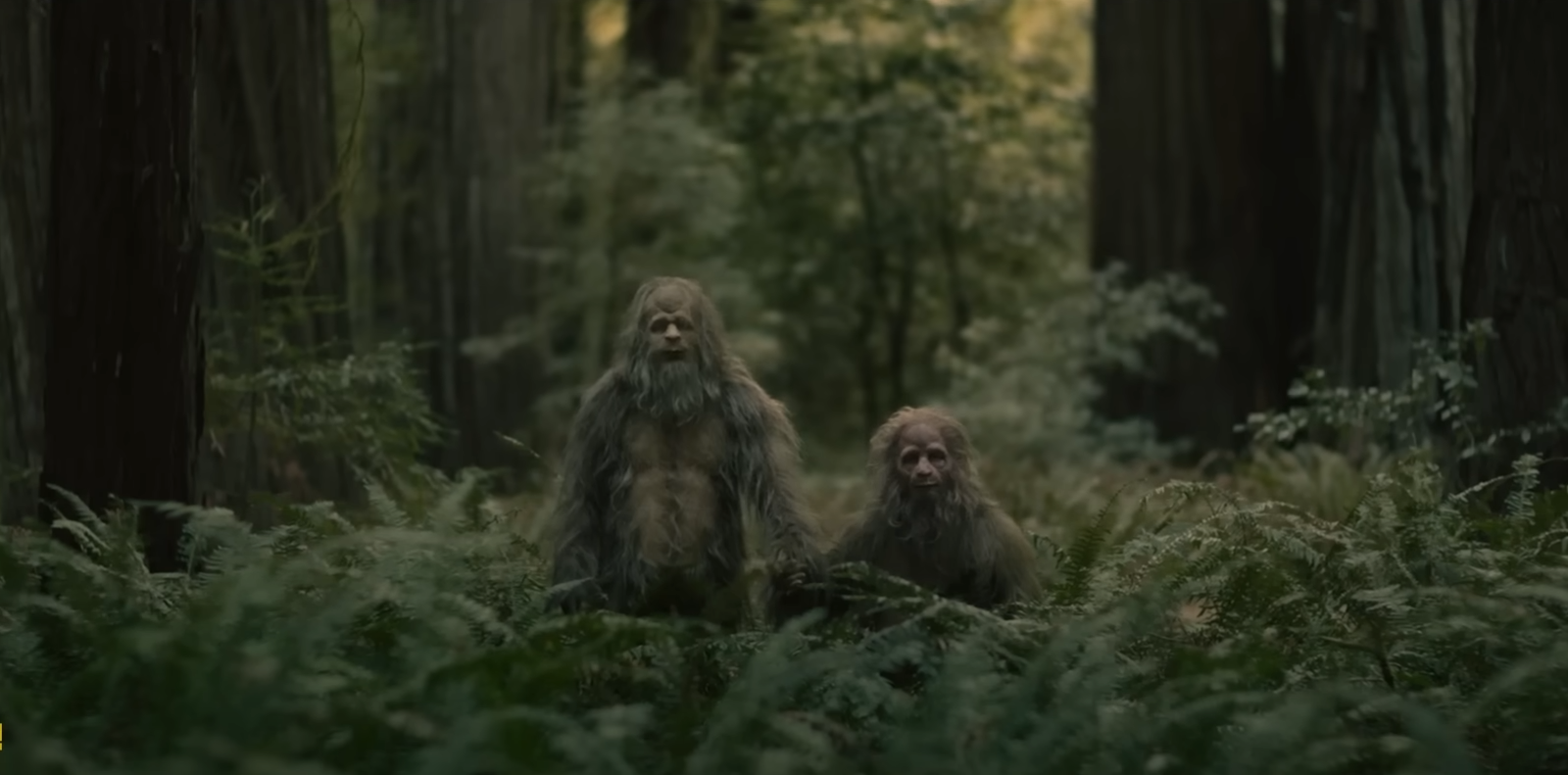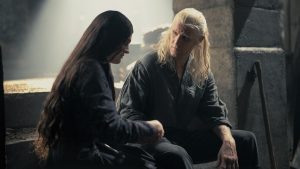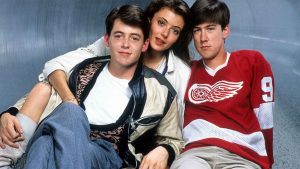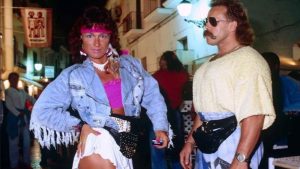
What the heck is Sasquatch Sunset?
Sure, we watched the trailer released earlier this year, but that didn’t help much. Outside of brief introductory text and quotes from critics, the wordless trailer introduces us to a group of Bigfoots in their natural wooded habitat. We watch them frolic in the woods, pound sticks on trees, and, yes, screw.
Although Sasquatches have appeared in film before, they usually have a clear and definable purpose. They’re monsters in movies such as Willow Creek or slightly bigger pets in comedies like Harry and the Hendersons. But Sasquatch Sunset doesn’t seem to fit into either of those categories, so what kind of movie is it?
“The movie is so funny because you’re watching these things that feel othered,” actor Jesse Eisenberg tells Den of Geek at SXSW 2024. “And then in 10 minutes, you’re watching these things that feel completely human, relatable, emotional, pained, vulnerable, funny, stupid. This movie is a perfect encapsulation of the fascination we have with these creatures.”
Eisenberg stars in Sasquatch Sunset alongside Riley Keough, Christophe Zajac-Denek, and Nathan Zellner — who co-directs with his brother, David Zellner — as members of a Bigfoot family. The movie, which was a clear labor of love for all involved, is not an easy one to categorize, according to the team.
Is Sasquatch Sunset a comedy? “Parts of it, yes,” says David Zellner, with a twinkle in his eye. “Everything we do kind of has a mix of comedy and pathos, so it’s kind of an intuitive process, which way it means one way or the other.” David sees the “broader jokes” as an entry point to the film, but he and his collaborators sought to embrace the “more tender human side of it when when that felt appropriate.”
Ultimately for Eisenberg, the enjoyment of the film comes from the way that it mirrors the human experience.
“It’s the link between humans and animals. [Sasquatches] have this incredible appeal of these things that are so close to us, and of course the narcissism of our species is fascinated by anything that’s so close to us, and yet also represents the id, the us without the anxieties of self-consciousness. It’s thrilling,” Eisenberg says. “
However, Eisenberg didn’t begin with such excitement. He admits he wasn’t even that into Bigfoot lore before he read the scripts and began shooting the movie. Eisenberg admits that when David Zellner first offered him the script, he first thought, “Oh, great! Well, I can’t wait to read it and never do it.” But it was that very human element that convinced him to sign up. “And then I got the script and, I’m sure I could speak for Christophe and Riley, within a page you realize this is not only a totally playable role, but this is a phenomenal acting role,” he says.
So, what separates each of these Sasquatch characters? Or are they all pure id?
“My character is more internal and thoughtful by nature so maybe that makes him a little closer to human. Nathan’s character is pure id, rage, sexuality, and aggression,” Eisenberg explains. “But it’d be like the kind of thing if you found a group of four human beings, you’d have the same kind of dynamic, and you might not say I’m the more human one.”
To help prepare for the film, the directors not only drew from their life-long interest in the subject, but also held what they called “Sasquatch boot camp,” in which they learned “to all get on the same page with our mannerisms and the way we walked and the way we kind of communicated to each other,” Nathan Zellner says.
However, once the cast got into their intricate costumes and started filming in Northern California, new challenges arose. Shooting on location added naturalism to the story, but it also presented the cast with problems. “If you shoot in a suit on a set, that’s a challenging situation because you have to keep the suit clean and do upkeep and make sure the actors are cool and not overheating,” Zajac-Denek explains. “When you’re out in the wilderness, everything gets amplified, everything gets more difficult — keeping the suit clean, keeping patches and repairs happening.”
Even in the trailer, we can see how successful the filmmakers and performers were at making the story look and feel natural. The costumes and actors fit right in alongside the real spaces, including all real, non-CGI animals.
However, as dedicated as all were to the verisimilitude of the project, they strove to retain the mystery at the center of the legendary creatures they portray.
“We have never seen Bigfoot. We would very much love to,” declares David, while also admitting, “I like the idea of there still being some mystery in the world, especially in the age we’re in, where everything is explained and mapped out. I would love there to be something mysterious that we have not seen.”
The big question is: Did the movie turn Eisenberg into a true believer?
“As we were out shooting in the Redwoods where Sasquatches are known to be, I started getting into the culture more, and it’s incredibly alluring,” he says. “I love the lore so much, so you hope that it’s real. You walk away from this thinking this would just be amazing, but I haven’t seen one.”
Sasquatch Sunset releases wide on April 12.
The post How Jesse Eisenberg Found the Human Side of Bigfoot for Sasquatch Sunset appeared first on Den of Geek.











